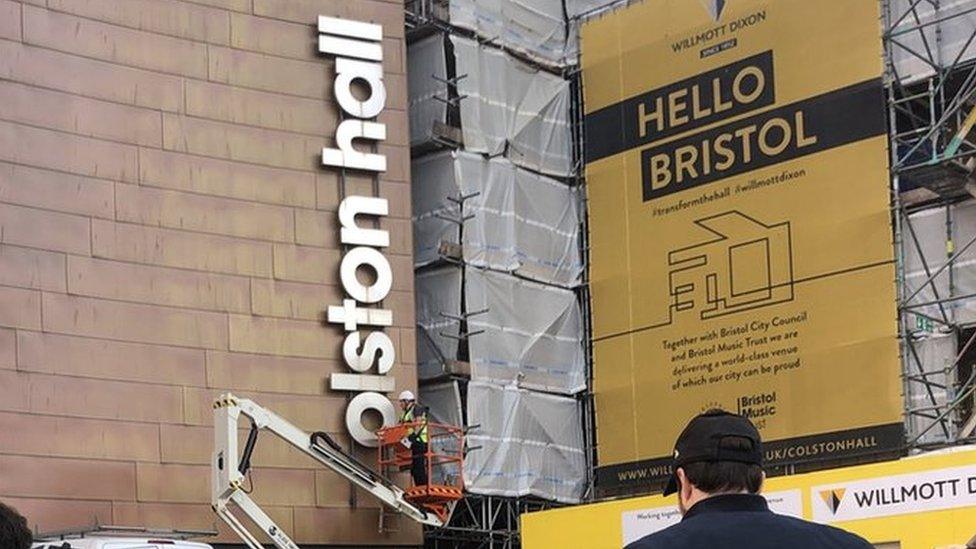University of Bristol slave trade buildings will not change names
- Published
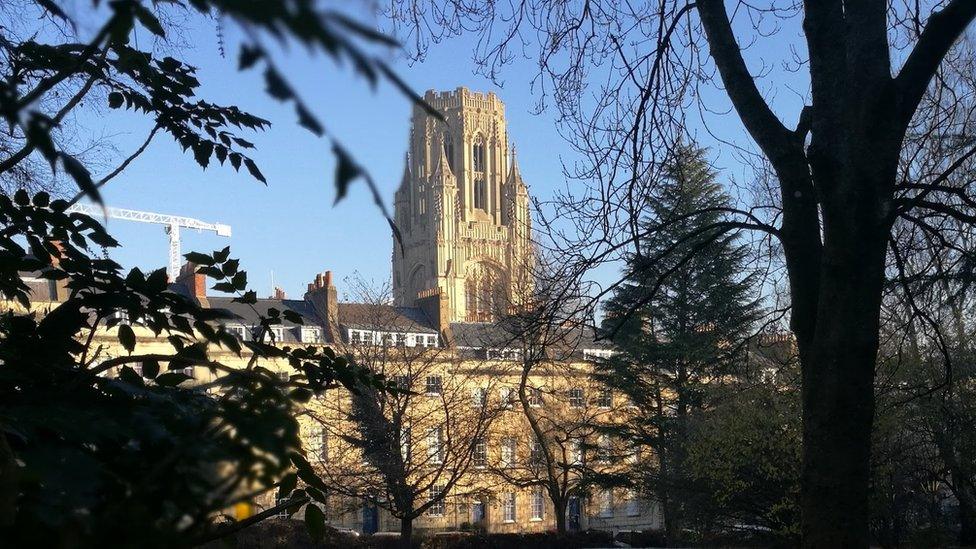
The Wills Memorial Building is one of the most recognisable parts of Bristol's skyline
A university is pledging £10m to help "address racial injustice" but will not change the name of its buildings named after people with slave trade links.
The University of Bristol said it will alter its logo to remove the dolphin emblem of slave trader Edward Colston.
The changes come after a consultation about buildings named after people with links to slavery such as Wills and Fry.
A university spokesperson said the decision to not change the names might not "please everybody".
The university will instead be "presenting the institution's founders' historic links to enslavement in a proper context".
It comes after Colston's city centre statue was pulled down and thrown into the harbour during a protest in 2020.
Vice-Chancellor and president, Prof Evelyn Welch, added: "I am deeply sorry for these damaging and hurtful experiences which continue to the present day, and I apologise to everyone impacted by those injustices.
"We aspire to be an inclusive institution and we must do better."
The money will be used for a "Reparative Futures" programme which will invest in schemes such as the current Black Scholarship programme.
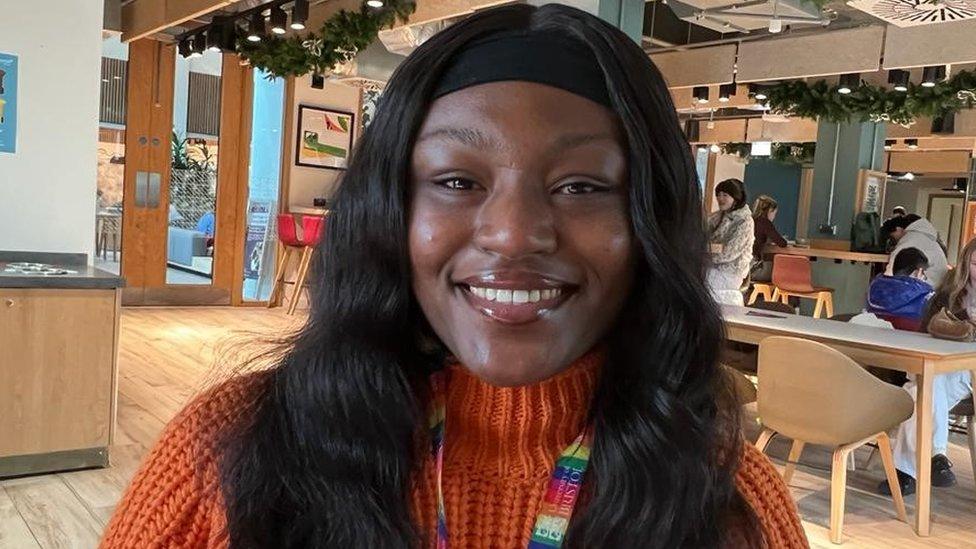
Student Ebube Enweani said you cannot pretend links to the slave trade do not exist
Ebube Enweani - president of the African and Caribbean society (ACS) at the University of Bristol said: "It is important they acknowledge the links because you cannot pretend it doesn't exist.
"We all remember the BLM (Black Lives Matter) protest and how the statue was toppled, it shows people who live here knows it exists."
She said by removing the Colston dolphin logo the university has taken out "the most direct link and cause".
"But from the £10m they've pledged, the main I would like is for it not to just go under the radar."
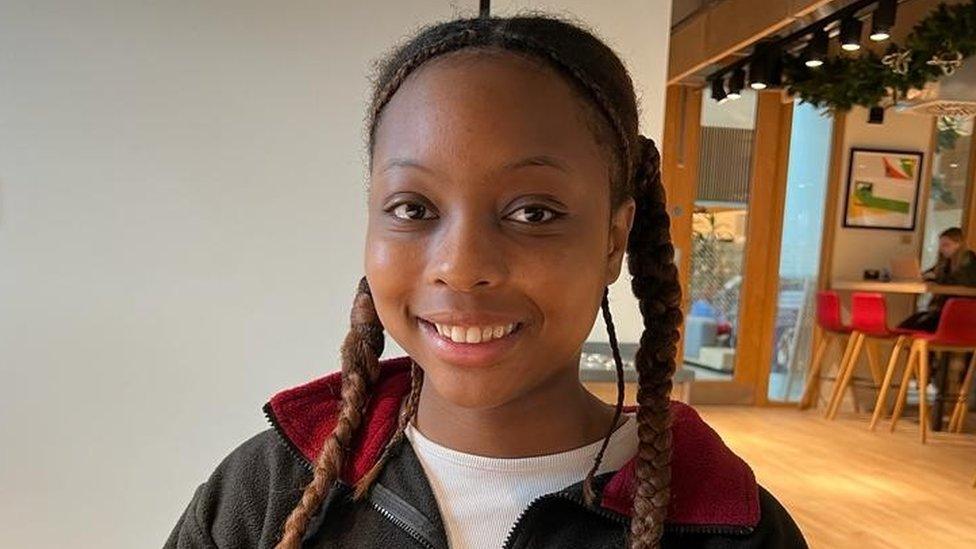
Ms Wallace said more transparency on what the university are doing with the money would be good
Desha Wallace, the Caribbean representative of ACS, said she is "proud of Bristol for acknowledging there is a history of racial inequality and social injustice... which is a very big step".
Speaking on name changes, she said: "We don't really pay much attention to the to the building names. Most students I speak to call the Fry's building the maths building so I understand why the university doesn't want to change those."
The strong ties to slavery with Colston made the removal of the dolphin logo understandable, but "removing stuff and changing names does very little to combat the issue of racial injustice, it's already done. You can't change history", she added.
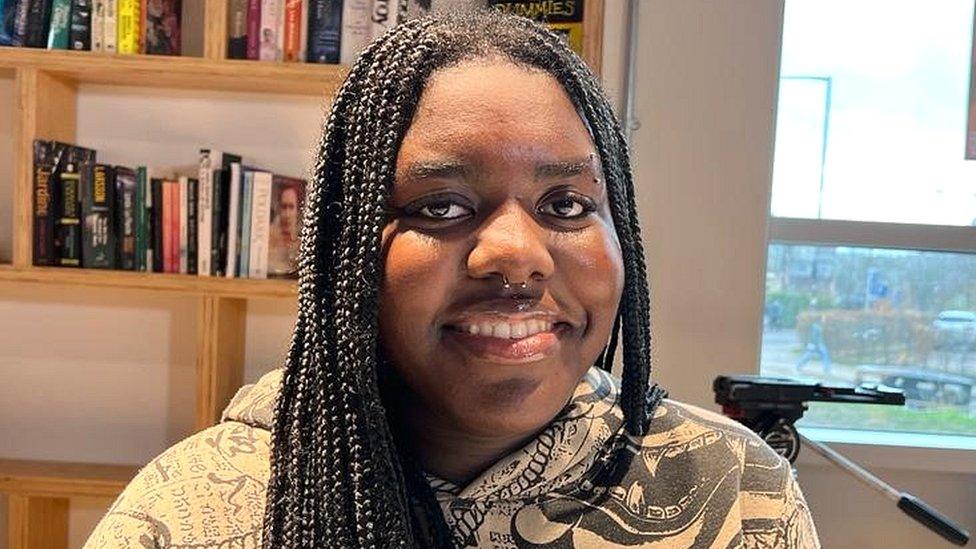
Student Lisa Inneh said it was important students are not left to improve the student experience
Lisa Inneh said although change is welcome, "how does it actually help students at the university?".
"[We're] seeing institutions throwing money at a problem but they're not really saying what they're going to do with it.
"How is money going to help people? It doesn't directly go to them. This is something so small, in a week or a year, it will probably be forgotten by most students."
Many of the University of Bristol's most well-known buildings are named after people who were beneficiaries of the slave trade, who then made donations.
The main city centre location for the university - the Wills memorial building - was named after the Wills family who made their money from tobacco production, and gave "considerable financial support".
"They were not enslavers, but their business and financial success benefitted from slavery as they traded in tobacco grown by enslaved Africans and their descendants," the university said.
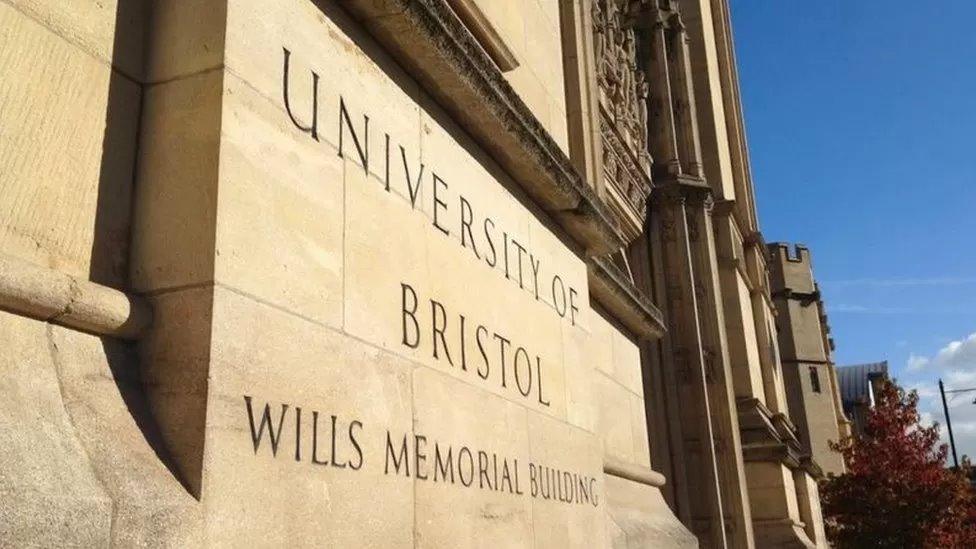
The university said it will make a £10m donation over slavery links
Other families who had buildings named after them included:
Fry family: Chocolatiers who were at one point using 39% of the UK's import of cocoa beans. Though not directly involved in slavery, the university said the cocoa was "produced from ingredients cultivated by enslaved people"
Colston family: Edward Colston was a "major figure in the Royal Africa Company which developed the transatlantic trade in enslaved Africans", the university said
Goldney Family: Records show that Thomas Goldney II funded several voyages associated with the transatlantic trade in enslaved Africans
Local historian Mark Steeds said he questioned renaming buildings and thinks they should be recognising all victims of enslavement with a memorial in the city centre to commemorate the people who lost their lives.
"Bristol is light years behind in recognising its involvement with the West African slave trade" he said.
"Renaming buildings is not necessarily the way forward... there needs to be an interpretation centre people can go to to make their own minds up," he added.
Other organisations in Bristol have taken a different approach over similar names.
The Bristol Beacon, which is due to reopen later in the week after a massive refurbishment, changed its name from Colston Hall.
It said the change would be "a fresh start for the organisation and its place in the city".
Mr Steeds was involved in campaigning to change the name of Colston Hall and said he was "pleased they changed the name".
However he added: "Perhaps they should have called it Freedom Hall... they seem to have absolved the history."
He also said the legacy of the Wills and Fry organisations is "far more complicated".

Follow BBC West on Facebook, external, X, external and Instagram, external. Send your story ideas to: bristol@bbc.co.uk , external
- Published29 June 2022
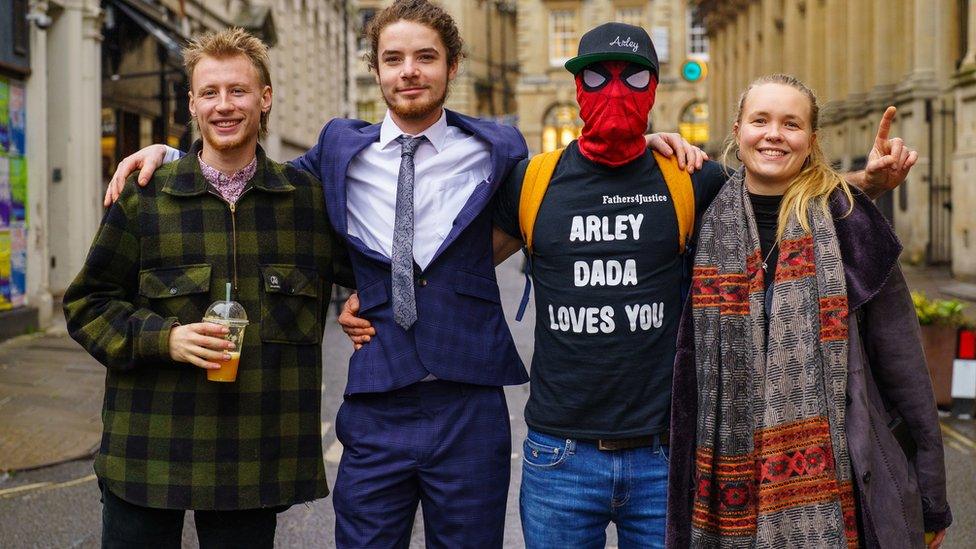
- Published20 May 2021
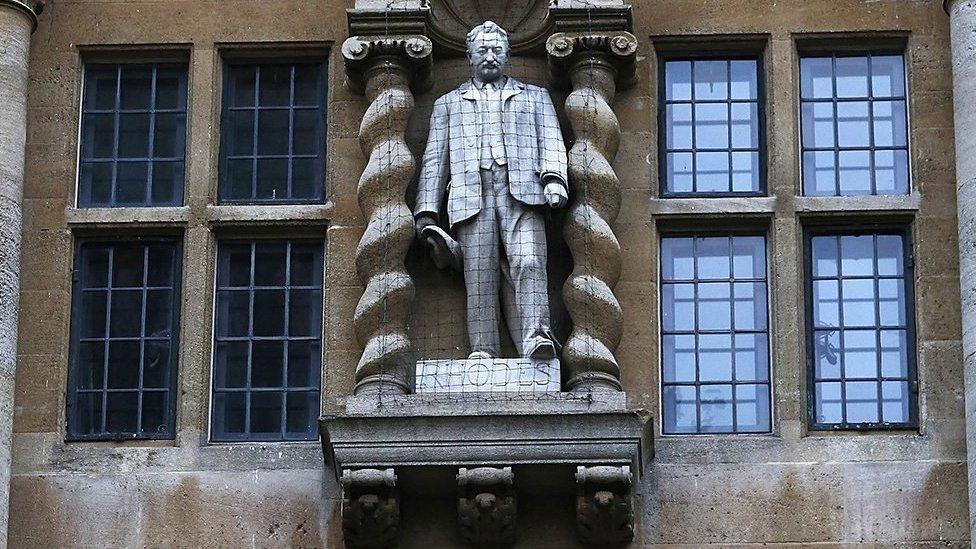
- Published23 September 2020
